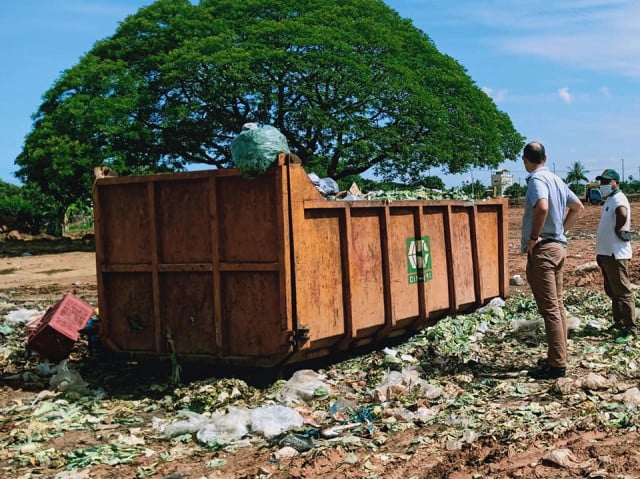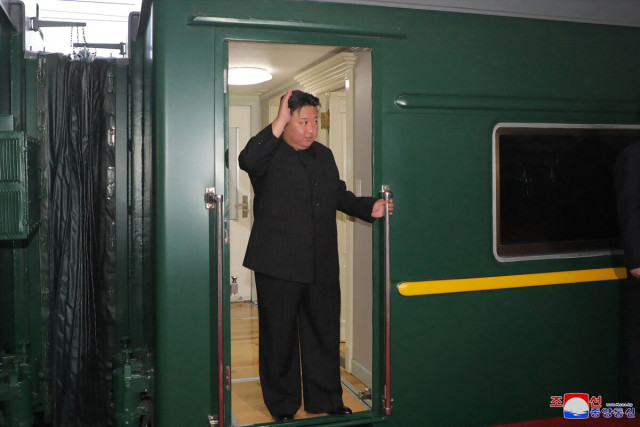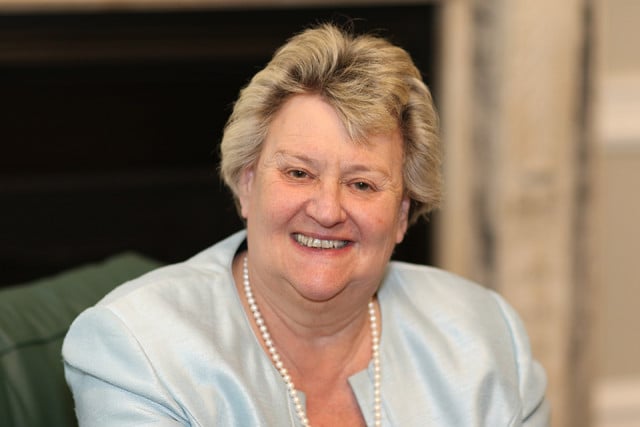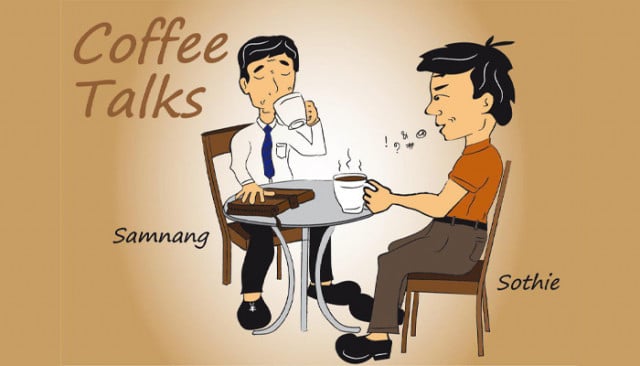Green City Solutions: Battambang’s Story of Success

- Jazmyn Himel
- June 6, 2020 1:04 AM
A look at the progress made in Battambang over the last two years since implementing policies aimed at sustainable waste management.
PHNOM PENH—Two years ago, seven Cambodian cities committed to a Sustainable City Strategic Plan to address environmental issues, with waste management being one of the highest priority issues among most of the cities, according to Global Green Growth Institute (GGGI) 2019 annual report.
Waste Management alike many other Cambodian cities had been a prevalent problem in the city, with its previously unreliable trash pickup schedules which led to a build up of waste in areas such as markets.
One of the seven Cambodian cities mentioned, Battambang followed GGGI’s “analysis of the city’s waste value chain, including generation, storage, collection, transport, recycling and disposal” to create a set of recommendations to improve waste management in the city.
Recommendations included establishing a tracking system for the separation of organic and plastic waste from households, promoting the use of compost among farmers, raising awareness about recycling and improve on governance of waste management.
A particularly important point mentioned by GGGI Country Representative Karolien Casaer-Diez in phone interview was the inconsistency in quality and quantity of separated wet and dry organic and plastic waste.
“Generally speaking they are well advanced on institutional arrangements,” GGGI Country Program Officer Jerome Fakhry explained over a phone interview.
One of the recommendations, delegating authority to Sangkat leaders—a district’s subdivision of which there are 10 in Battambang—is already underway, so that leaders can “work closely with the municipality to get a better reach out to the population.”
“Having information flow on the ground is important as well, so how do you get to the people…the municipality can do information campaigns as well but this responsibility is better to delegate to the Sangkat so they can reach the local community,” Fakhry continued, adding that through a two-way flow of information, municipalities can communicate with local communities.
The decentralization of waste management in Battambang’s municipality to its Sangkat leaders is done to ensure the needs of each community are met within the municipality.
“The municipality will then organize collection by the private sector, with payment to the schools for the recyclable material, resulting in a win-win situation for all parties involved,” the report continued, “the project will be of particular benefit to the schools that have no waste collection services available to them”.
In fact, the preexisting local recycling businesses is partly what made the city’s sustainable story successful, Casaer-Diez explained.
“We focused on existing businesses in Battambang. We built on what was already there,” Casaer-Diez said. GGGI helped the local recycling businesses come up with new ideas, along with “improving material flow to them, improving quality and quantity.” She added that a lot of time and money goes into separating a lot of inorganic and organic products.
The project helped to train market cleaners to place waste in separate bins for organic and recyclable waste, and established a consistent waste collection schedule with private waste collection company CINTRI and local businesses who are responsible for the recyclable waste.
Since GGGI’s involvement, Casaer-Diez stated that organic waste—referring to non recyclable and compostable waste—pickups saw an increase from 4-5 metric tons per day from 2018 to 8-10 metric tons daily as of 2020, adding that the volume is still increasing.
Similarly, the plastic waste recyclers have seen an increase from 3-10 metric tons of plastic per month in 2018 to 15-20 metric tons monthly by 2020.
Changing Behavior
The GGGI project began at the end of 2018, with workshops to agree on recommendations throughout 2019 and the local coordinator starting in December 2019.
Battambang reportedly started its clean city endeavor with a plastic recycling campaign among five secondary schools with almost 10,000 participants. Funded by Coca-Cola, the campaign provided collection containers for plastic waste.
According to GGGI’s report, the school campaign will continue throughout 2020, however “the municipality is now turning its attention to Battambang’s markets, planning plastic source separation activities at two markets and source separation of organic waste for composting at the wholesale fruit and vegetable market”.
This will include a waste management system focused on the separation of wet and dry waste in order to effectively separate the recyclable goods from other waste.
“Over time the city’s aim is to involve all schools, markets, shops, restaurants and eventually households, leading to a cleaner city and more business expansion,” the report said.
However, changing behaviors will continue to be at the forefront of the project, which both Fakhry and Casaer-Diaz stress will be a long-term one, as short-term educational campaigns are not effective.
“Education is important, but stand-alone it is not enough,” Casaer-Diaz stressed. “Providing education in [the] long term, being consistent in your messaging over longer periods of time in combination with infrastructure solutions such as having the bings there, having recycling companies there, and that means people seeing their waste going to appropriate places, having a minimum of enforcement these, are the keys to a change in littering behavior."















